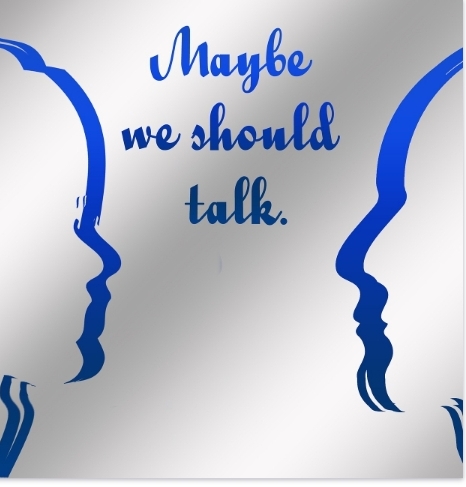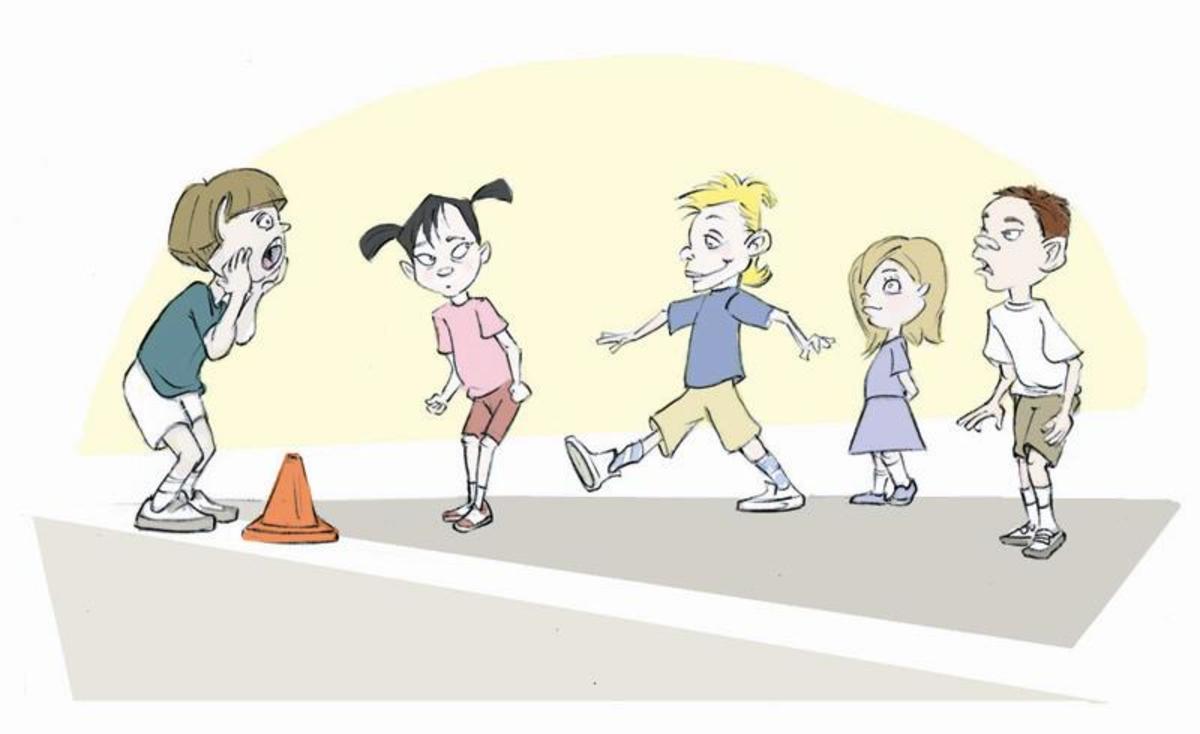The Art of Conversation
Time to Talk
I don't claim to be an expert on this topic. However, I am sharing some basic knowledge that I acquired from some English Comp classes I attended in college many years ago. A generation or two ago to be specific. Also, from things I've learned through personal adventures along the way. Now, I understand that there will always be new "Kool" words and new phrases that will go through their generational phases. What I'm talking about are basic communication courtesy's. What follows are some "Tips", "To-Do's" and "Not-to-Do's" when talking with people.

SELF-TALK
If you're not accustomed to talking to people, one option to consider is to practice having discussions with yourself in front of a mirror or throughout your day if you have some spare time. When in public though, I think one should proceed with caution before talking to self. If someone should happen by, this could be overheard and easily misconstrued and possibly become an invitation for that ever lurking workplace malady known as "Gossip." That word takes on a whole new life of it's own and I choose to take a detour from that topic. Another option you could do is to carry on a conversation with God, Source, The Creator or whomever you perceive God to be. This is also known as a prayer or praying.
Prayer is simply a two-way conversation between you and God.
— Billy GrahamThe Power of Words
Words are extremely powerful. Once spoken, you can never get them back. They are forever out there floating around in the universe. I liken it to a hitchhiker just waiting for the right driver to come along and pick them up so that they may spread their mayhem or joy (depending upon the nature of the word). So many times, conflicts can be avoided if we don't lend creedence to the old adage, "What we have is a failure to communicate." Let's avoid that outcome all together and put into practice a new and improved adage such as, "What we have, are acquired skills for success in communicating". So, here's a tip. When you are conversing with people, if you aren't 100% sure that what you heard is correct or you don't understand what was said, to avoid any potential misunderstandings, simply clarify if what you heard and understood is correct. Every now and then, we are all bound to have the unavoidable disagreement which can ultimately explode into a full-blown argument. My best advice when this happens is to pull out the most powerful "To-Do" of all. Apply the 24 hour rule of thumb. Agree to disagree and give yourselves 24 hours before saying or doing anything that you might regret later. A kind of cooling off period that gives each party some time to get their emotions in check and reflect upon their true feelings.

There Are All Types of Talkers
There are probably as many types of talkers as there are languages. There are clans of people that have a language all of their own. They can be found to normally habitat in the same geographical areas and use words not even found in dictionaries. An example of this is the use of words such as "ain't" and sentences such as, "I ain't got no..." and if you hang around these folks often or long enough, you will find yourself talking this way, as well. Then you have the garden-variety type that can't or will not finish a complete sentence without at least one curse word. Often times just one curse word doesn't cut it, they feel that the more curses injected into their verbage, the livelier the conversation. Let's not forget about the passive-aggressive talkers. Oh, they come across as really nice people with a voice as sweet sounding as syrup. However, upon hearing their spoken words and then processing said words, a look of shock may appear on your face. One such example of this would be something like, "My goodness, I just love that sweater you're wearing. It complements your fat so well." These are just a few of the types of conversations that you may encounter in your life's experiences.

Word Games
Does anyone remember the childhood game where everyone would sit cross-legged in a circle and one person would start by whispering something into the ear of the person sitting beside them then that person would repeat what she understood to the next person and so on until the last person was relayed the message. Then the last person in the circle would stand up and announce out loud what he understood the message to be. Well it never sounded anything close to how it started out and we would all get the biggest laughs about how it could be so different. In hindsight, we were pretty naive. There are countless possibilities as to why that could have occurred from point A to point C.
"TIPS"
- Put yourself in the other person's shoes.
- Sometimes it pays to say nothing.
- Give feedback when neccessary.
"TO-DO's"
- Get clarification that you understand the direction of the conversation, if needed.
- If you don't have anything nice to say then don't say anything at all.
- The 24 hour rule gives you a waiting period to get your emotions in check before saying or doing anything rash that you might regret later.
"NOT-TO-DO'S"
- Never monopolize the conversation, it's very rude.
- Never assume you know everything. Use clarification if needed.
- Never, ever participate in Gossip if you can at all avoid it.
There Are Two Parts to a Conversation
For a conversation to have a successful interaction, each participant in the conversation must utilize the two basic components of conversation which are speaking and listening. It doesn't work with only one. Some people want to monopolize the conversation and only be heard and that just doesn't work. I'm not sure why, maybe they like the sound of their own voice or perhaps they have narcissistic tendencies and truly believe that what they have to say is the only thing that matters. I would suggest to these types of talkers, to consider pursuing a career as a public speaker.
In conclusion, I hope you found my "Tips", "To-Do's" and "Not-to-Do's" useful and that you are able to apply them the next time you master the art of a conversation.








